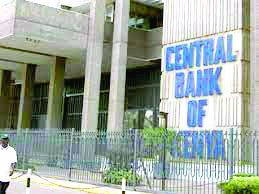Defaulters risk auction as banks up credit recovery

Banks are expected to target personal and household loan defaulters soon after elections as pressure to maintain their financial stability soars, setting the stage for a boom in the debt collection industry, Central Bank of Kenya (CBK) report shows.
The aggression signals tougher times for Kenyan small-scale businesses and households who are still struggling to meet their financial obligations following Covid-19 economic shocks, buoyed by election jitters and runaway inflation.
An increase in the number of households who lost their jobs or their businesses due to the pandemic have fuelled high default rates. Borrowers are hoping for political tensions to subside before resuming business operations.
CBK says banks are expected to intensify the seizure by September 2022 targeting personal and household sectors, at 81 per cent, followed by 77 per cent in the trade sector.
“For the quarter ended September 30, 2022, banks expect to intensify their credit recovery efforts in nine economic sectors and remain constant in two sectors (Mining and Quarrying, and Financial Services),” it adds in its latest quarterly credit risk assessment report.
The list of defaulters targeted by banks is also likely to include numerous political aspirants who borrowed heavily from banks to fund campaigns but failed to clinch their elective seats.
Enhanced credit recovery efforts in the third quarter of 2022 in the transport and communication, real estate, and building and construction sectors stands at 74 per cent each. The banking sector regulator says the intensified recovery efforts are aimed at improving the overall quality of the asset portfolio for the commercial banks in Kenya.
Increased credit
The value of gross non-performing loans (NPLs) stood at Sh470 billion at the end of April 2022 compared to Sh438.3 billion at the same time last year. Gross NPLs increased by 8.6 per cent by June 2022, according to CBK.
Despite persisting loan defaults, banks have not relented in lending, with CBK estimating that gross loans increased by 3.3 per cent, from Sh3.38 billion in march 2022 to Sh3.49 billion in June 2022. The increase in gross loans was mainly due to increased credit granted for working capital purposes and loans granted to individual borrowers.
Persistence of loan defaults is diluting the banks asset quality, which is the ratio of NPLs as a share of total loan portfolio.
“The asset quality, measured by gross nonperforming loans to gross loans ratio deteriorated from 14 per cent in March 2022, to 14.7 per cent in June 2022,” CBK said in June credit officer survey report.
Lenders have lately been seeking to increase their credit recovery measures through auctioneers, especially in the personal and household, trade, real estate, hospitality, and transport sectors.
Between June and July, the local newspapers have been filled with hundreds of homes and commercial properties set for auction valued in the hundreds of millions.












